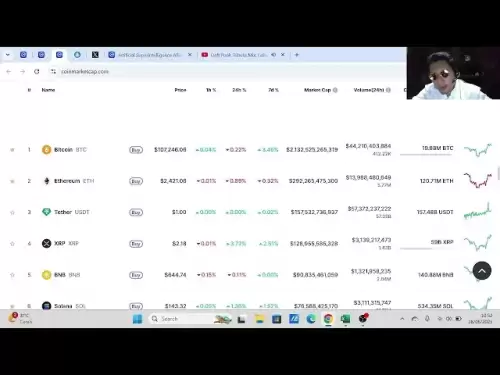-
 Bitcoin
Bitcoin $107,490.3555
0.12% -
 Ethereum
Ethereum $2,429.0242
-0.68% -
 Tether USDt
Tether USDt $1.0003
-0.01% -
 XRP
XRP $2.1909
4.62% -
 BNB
BNB $647.0228
0.21% -
 Solana
Solana $145.4573
2.77% -
 USDC
USDC $0.9998
0.00% -
 TRON
TRON $0.2743
1.11% -
 Dogecoin
Dogecoin $0.1629
0.78% -
 Cardano
Cardano $0.5639
1.17% -
 Hyperliquid
Hyperliquid $36.8090
0.45% -
 Bitcoin Cash
Bitcoin Cash $498.6939
-0.90% -
 Sui
Sui $2.7064
2.60% -
 Chainlink
Chainlink $13.1161
0.01% -
 UNUS SED LEO
UNUS SED LEO $9.0785
0.73% -
 Stellar
Stellar $0.2383
1.62% -
 Avalanche
Avalanche $17.6030
0.75% -
 Toncoin
Toncoin $2.8449
0.32% -
 Shiba Inu
Shiba Inu $0.0...01137
1.06% -
 Litecoin
Litecoin $85.4672
0.49% -
 Hedera
Hedera $0.1473
2.72% -
 Monero
Monero $314.3940
1.03% -
 Bitget Token
Bitget Token $4.7116
0.51% -
 Dai
Dai $1.0001
0.02% -
 Polkadot
Polkadot $3.3462
1.11% -
 Ethena USDe
Ethena USDe $1.0004
0.04% -
 Uniswap
Uniswap $6.9306
0.38% -
 Pi
Pi $0.5343
-2.80% -
 Pepe
Pepe $0.0...09292
0.33% -
 Aave
Aave $255.4154
-0.75%
Bitcoin contract position rules
Bitcoin contract position rules, enforced by exchanges through automated monitoring and manual review, are designed to prevent market manipulation, ensure fair pricing, and protect traders from excessive losses.
Nov 26, 2024 at 01:22 am

Bitcoin Contract Position Rules: A Comprehensive Guide
Introduction
In the realm of cryptocurrency trading, understanding and adhering to contract position rules is crucial for managing risk and ensuring a secure trading environment. Bitcoin, the world's leading cryptocurrency, is no exception, and its contract position rules play a vital role in maintaining market stability and protecting traders. This comprehensive guide will delve into the intricacies of Bitcoin contract position rules, providing an in-depth explanation of their purpose, significance, and enforcement mechanisms.
Purpose of Bitcoin Contract Position Rules
Bitcoin contract position rules are established by centralized exchanges to govern the behavior of traders and maintain an orderly trading environment. These rules aim to:
- Prevent market manipulation: By imposing restrictions on the size and holding periods of contract positions, exchanges can deter traders from engaging in excessive speculation that could disrupt market stability.
- Ensure fair pricing: Contract position rules help prevent imbalances between buyers and sellers, leading to more accurate and fair market prices.
- Protect traders from excessive losses: By limiting the risk exposure of individual traders, exchanges aim to safeguard them from catastrophic losses that could arise from highly leveraged trading.
Significance of Contract Position Rules
Contract position rules have a significant impact on the trading strategies and behaviors of traders. They:
1. Influence Trading Decisions:
- Traders must consider the established limits when determining the size and duration of their contract positions.
- This influences their risk appetite and the overall balance of buyers and sellers in the market.
2. Provide a Framework for Risk Management:
- Traders can use contract position rules to assess their exposure and implement appropriate risk management measures.
- Exchanges use position limits to identify and flag potential excessive risk-taking.
3. Foster Market Stability:
- Contract position limits prevent extreme fluctuations in prices by curbing the concentration of large positions in the hands of a few traders.
- This reduces the likelihood of market imbalances and promotes a more balanced and resilient trading environment.
Enforcement of Contract Position Rules
Exchanges typically enforce contract position rules through a combination of automated monitoring and manual review. They employ the following mechanisms:
1. Automated Monitoring:
- Exchange systems monitor trading activity in real-time to detect any breaches of established limits.
- Alerts and triggers are set up to identify suspicious patterns or excessive positions.
2. Manual Review:
- Exchange compliance teams conduct regular reviews of trading data to identify potential rule violations.
- Traders may be contacted to provide justifications or explanations for unusual or excessive positions.
3. Penalties and Consequences:
- Exchanges may impose penalties on traders who violate contract position rules.
- Consequences can include forced liquidation of positions, suspension of trading privileges, and fines.
Top 5 Bitcoin Exchanges and Their Contract Position Rules
| Exchange | Max Position Size (BTC) | Max Holding Period (Hours) |
|---|---|---|
| Binance | 200 | 24 |
| Coinbase Pro | 25 | 48 |
| Kraken | 500 | Unlimited |
| Gemini | 100 | 48 |
| Bitstamp | 150 | 48 |
Conclusion
Bitcoin contract position rules are essential for maintaining a safe and stable cryptocurrency trading environment. By adhering to these rules, traders can manage their risk effectively, prevent market manipulation, and foster a more conducive trading platform. Exchanges actively enforce these rules, utilizing automated monitoring and manual review, and impose penalties on those who violate them. By understanding and complying with these regulations, traders can contribute to the integrity and sustainability of the Bitcoin market.
Disclaimer:info@kdj.com
The information provided is not trading advice. kdj.com does not assume any responsibility for any investments made based on the information provided in this article. Cryptocurrencies are highly volatile and it is highly recommended that you invest with caution after thorough research!
If you believe that the content used on this website infringes your copyright, please contact us immediately (info@kdj.com) and we will delete it promptly.
- Undervalued Crypto Gems: Time to Buy Now?
- 2025-06-28 14:30:12
- Stablecoins, Risk Reward, and Regulation: Navigating the Crypto Minefield
- 2025-06-28 14:30:12
- Binance Coin (BNB): Whale Moves, Exchange Activity, and the Path to $900?
- 2025-06-28 14:50:13
- XLM, Stellar, Surge: What's Driving the Buzz?
- 2025-06-28 14:55:12
- DAO Governance at a Crossroads: Voter Apathy, Treasury Diversification, and the Quest for Sustainability
- 2025-06-28 14:58:49
- Tokenomics, Blockchain, and Digital Economies: Key Trends and Insights
- 2025-06-28 14:40:12
Related knowledge
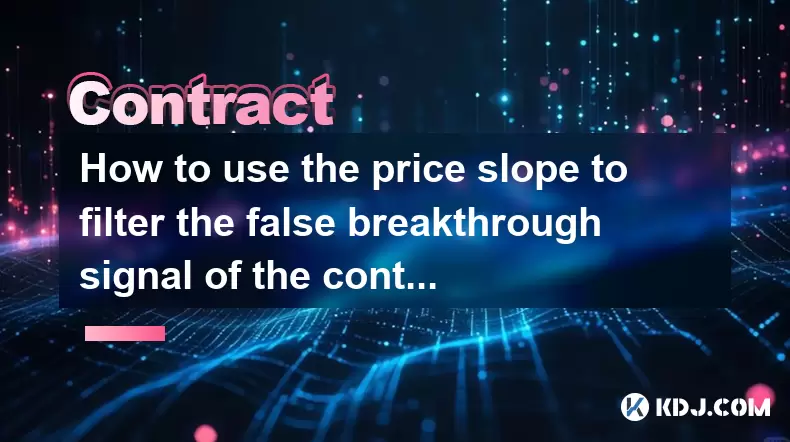
How to use the price slope to filter the false breakthrough signal of the contract?
Jun 20,2025 at 06:56pm
Understanding the Concept of Price Slope in Contract TradingIn contract trading, especially within cryptocurrency derivatives markets, price slope refers to the rate at which the price changes over a specific time period. It helps traders assess the strength and sustainability of a trend. A steep slope may indicate strong momentum, while a shallow slope...
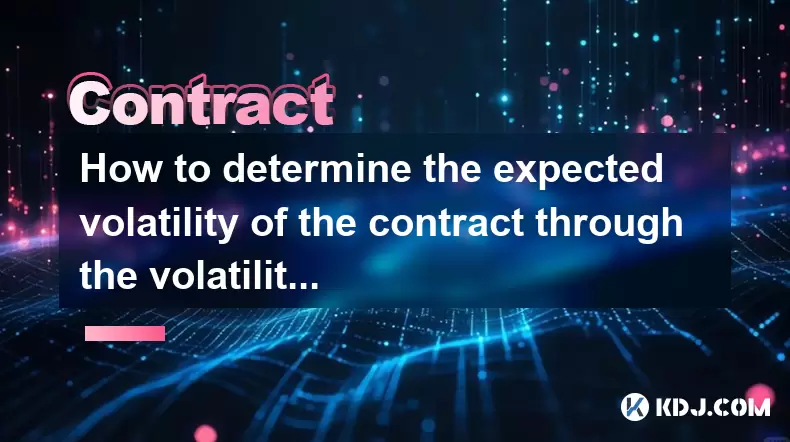
How to determine the expected volatility of the contract through the volatility cone?
Jun 19,2025 at 12:28pm
Understanding the Basics of Volatility in Cryptocurrency ContractsIn the realm of cryptocurrency trading, volatility is a key metric that traders use to assess potential risk and reward. When dealing with futures contracts, understanding how volatile an asset might become over time is crucial for position sizing, risk management, and strategy developmen...
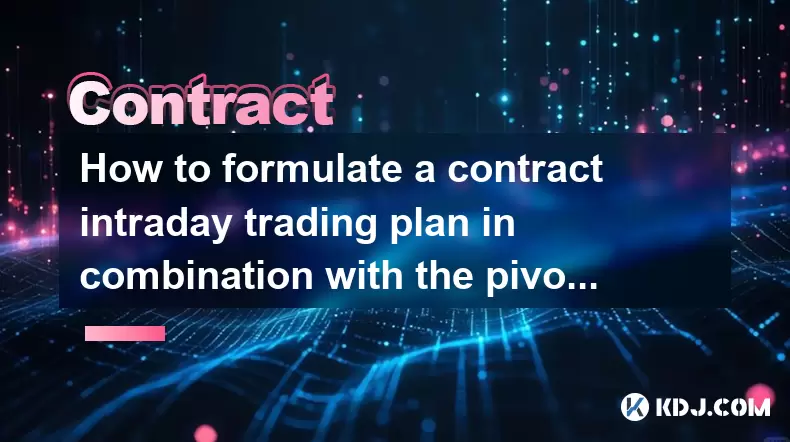
How to formulate a contract intraday trading plan in combination with the pivot point system?
Jun 21,2025 at 03:42pm
Understanding the Basics of Pivot Points in Cryptocurrency TradingPivot points are technical analysis tools used by traders to identify potential support and resistance levels. These levels are calculated using the previous day's high, low, and closing prices. In the context of cryptocurrency trading, where markets operate 24/7, pivot points help trader...
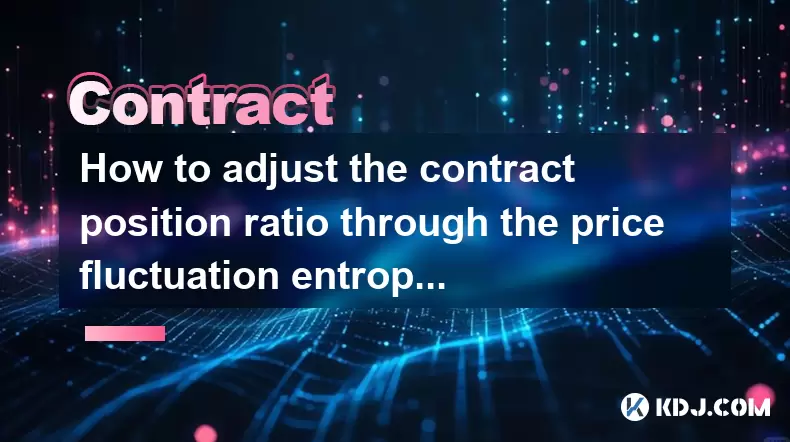
How to adjust the contract position ratio through the price fluctuation entropy?
Jun 22,2025 at 11:42am
Understanding Price Fluctuation Entropy in Cryptocurrency ContractsIn the world of cryptocurrency futures trading, price fluctuation entropy is a relatively new concept used to measure market volatility and uncertainty. It derives from information theory, where entropy refers to the degree of randomness or unpredictability in a system. In crypto contrac...
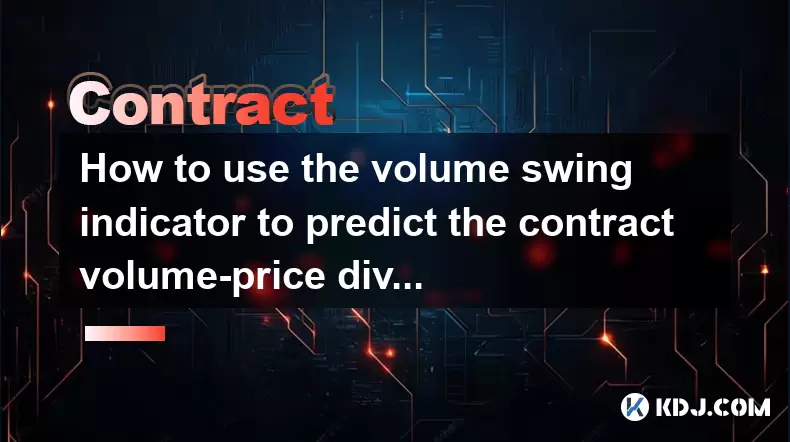
How to use the volume swing indicator to predict the contract volume-price divergence?
Jun 18,2025 at 11:42pm
Understanding the Volume Swing IndicatorThe volume swing indicator is a technical analysis tool used primarily in cryptocurrency trading to evaluate changes in volume over time. Unlike price-based indicators, this metric focuses solely on trading volume, which can provide early signals about potential market reversals or continuations. The key idea behi...

How to use the Gaussian channel to set the contract trend tracking stop loss?
Jun 18,2025 at 09:21pm
Understanding the Gaussian Channel in Cryptocurrency TradingThe Gaussian channel is a technical indicator used primarily in financial markets, including cryptocurrency trading, to identify trends and potential reversal points. It is based on statistical principles derived from the normal distribution, commonly known as the Gaussian distribution or bell ...

How to use the price slope to filter the false breakthrough signal of the contract?
Jun 20,2025 at 06:56pm
Understanding the Concept of Price Slope in Contract TradingIn contract trading, especially within cryptocurrency derivatives markets, price slope refers to the rate at which the price changes over a specific time period. It helps traders assess the strength and sustainability of a trend. A steep slope may indicate strong momentum, while a shallow slope...

How to determine the expected volatility of the contract through the volatility cone?
Jun 19,2025 at 12:28pm
Understanding the Basics of Volatility in Cryptocurrency ContractsIn the realm of cryptocurrency trading, volatility is a key metric that traders use to assess potential risk and reward. When dealing with futures contracts, understanding how volatile an asset might become over time is crucial for position sizing, risk management, and strategy developmen...

How to formulate a contract intraday trading plan in combination with the pivot point system?
Jun 21,2025 at 03:42pm
Understanding the Basics of Pivot Points in Cryptocurrency TradingPivot points are technical analysis tools used by traders to identify potential support and resistance levels. These levels are calculated using the previous day's high, low, and closing prices. In the context of cryptocurrency trading, where markets operate 24/7, pivot points help trader...

How to adjust the contract position ratio through the price fluctuation entropy?
Jun 22,2025 at 11:42am
Understanding Price Fluctuation Entropy in Cryptocurrency ContractsIn the world of cryptocurrency futures trading, price fluctuation entropy is a relatively new concept used to measure market volatility and uncertainty. It derives from information theory, where entropy refers to the degree of randomness or unpredictability in a system. In crypto contrac...

How to use the volume swing indicator to predict the contract volume-price divergence?
Jun 18,2025 at 11:42pm
Understanding the Volume Swing IndicatorThe volume swing indicator is a technical analysis tool used primarily in cryptocurrency trading to evaluate changes in volume over time. Unlike price-based indicators, this metric focuses solely on trading volume, which can provide early signals about potential market reversals or continuations. The key idea behi...

How to use the Gaussian channel to set the contract trend tracking stop loss?
Jun 18,2025 at 09:21pm
Understanding the Gaussian Channel in Cryptocurrency TradingThe Gaussian channel is a technical indicator used primarily in financial markets, including cryptocurrency trading, to identify trends and potential reversal points. It is based on statistical principles derived from the normal distribution, commonly known as the Gaussian distribution or bell ...
See all articles























